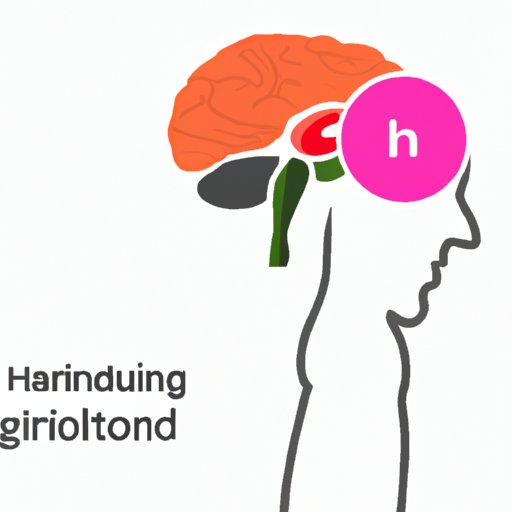Pituitary Gland Hormones: The Central Players in Maintaining Hormonal Balance
The pituitary gland plays a crucial role in hormone secretion and regulation in the human body. Located at the base of the brain, the pituitary gland produces and secretes several hormones that influence the growth, development, metabolism, and mood of individuals. In this article, we will explore the different hormones produced by the pituitary gland and their impact on overall health.

The Role of Pituitary Gland Hormones in Maintaining Hormonal Balance
Hormones are chemical messengers that regulate body functions and maintain balance in the body. Hormonal balance refers to the stable levels of hormones in the body that enable it to function normally. The pituitary gland, also known as the “master gland,” produces and secretes hormones that are responsible for regulating the activity of other organs and glands in the body.
The pituitary gland is divided into two distinct areas: the anterior and posterior pituitary. The anterior pituitary produces and secretes several hormones that regulate growth and development, while the posterior pituitary secretes hormones that control water balance in the body.
Exploring the Functions of the Pituitary Gland Hormone: Growth Hormone
Growth hormone, also known as somatotropin, is one of the most important hormones produced by the anterior pituitary gland. It regulates growth and development in children and adolescents and helps to maintain muscle and bone mass in adults.
In children, growth hormone stimulates the growth of bones and tissues, resulting in increased height and weight gain. In adults, growth hormone plays a vital role in preserving muscle mass and bone density and reducing the risk of osteoporosis.
However, growth hormone deficiency can lead to several medical conditions such as dwarfism, while excess growth hormone secretion can result in gigantism or acromegaly. Symptoms of growth hormone deficiency include delayed puberty, stunted growth, and increased body fat, while symptoms of excess growth hormone include overgrowth of bones, enlarged facial features, and joint pain.
Understanding the Effects of Pituitary Gland Hormone Secretion on Our Bodies
The hormones produced by the pituitary gland affect the activity of other glands and organs in the body. The pituitary gland secretes pituitary tropic hormones such as follicle-stimulating hormone (FSH), luteinizing hormone (LH), and thyroid-stimulating hormone (TSH), which regulate the activity of the gonads and thyroid gland respectively.
Pituitary gland hormone dysfunction can lead to several medical conditions such as hypothyroidism, hyperthyroidism, and hypogonadism. Symptoms of these conditions include weight gain or weight loss, fatigue, and sexual dysfunction.
What You Need to Know About Pituitary Gland Hormones and Their Impact on Health
It is essential to understand the importance of pituitary gland hormones in maintaining optimal health. Individuals with medical conditions related to pituitary gland hormone secretion require regular check-ups and treatment to maintain hormonal balance and prevent complications.
Medical conditions that affect pituitary gland hormone secretion include pituitary tumors, prolactinomas, and Cushing’s disease. These conditions can lead to hormone overproduction or deficiency and require treatment such as medication or surgery.
The Importance of Pituitary Gland Hormones for Growth and Development
Pituitary gland hormones play a crucial role in childhood growth and development. Growth hormone deficiency can lead to medical conditions such as dwarfism and delayed puberty.
Treatment options for hormone-related growth disorders include growth hormone replacement therapy. This treatment involves injecting synthetic growth hormone into the body to stimulate growth and development.
The Pituitary Gland: A Central Player in Hormone Regulation
The pituitary gland is a central player in the regulation of other hormones in the body. Hormones produced by the pituitary gland exert their effects on target organs through several pathways. For example, luteinizing hormone (LH) and follicle-stimulating hormone (FSH) regulate the activity of the gonads, while thyroid-stimulating hormone (TSH) regulates the activity of the thyroid gland.
How the Pituitary Gland Hormone Affects Mood, Energy, and Metabolism
Pituitary gland hormones also affect mood, energy levels, and metabolism. The hormones produced by the pituitary gland interact with other hormones and neurotransmitters in the body to regulate emotional and physical responses.
Pituitary gland hormone dysfunction can lead to several emotional and physical symptoms such as anxiety, depression, fatigue, and weight gain or loss. Treatment options for hormone-related mood and energy disorders include medication and therapy.
Conclusion
In conclusion, the pituitary gland is a crucial organ that plays a vital role in maintaining hormonal balance and regulating body functions. Hormones produced by the pituitary gland affect growth, development, metabolism, and mood and require regular check-ups and treatment to prevent complications. If you experience symptoms of pituitary gland hormone dysfunction, seek medical attention to maintain hormonal balance and improve your overall health.
